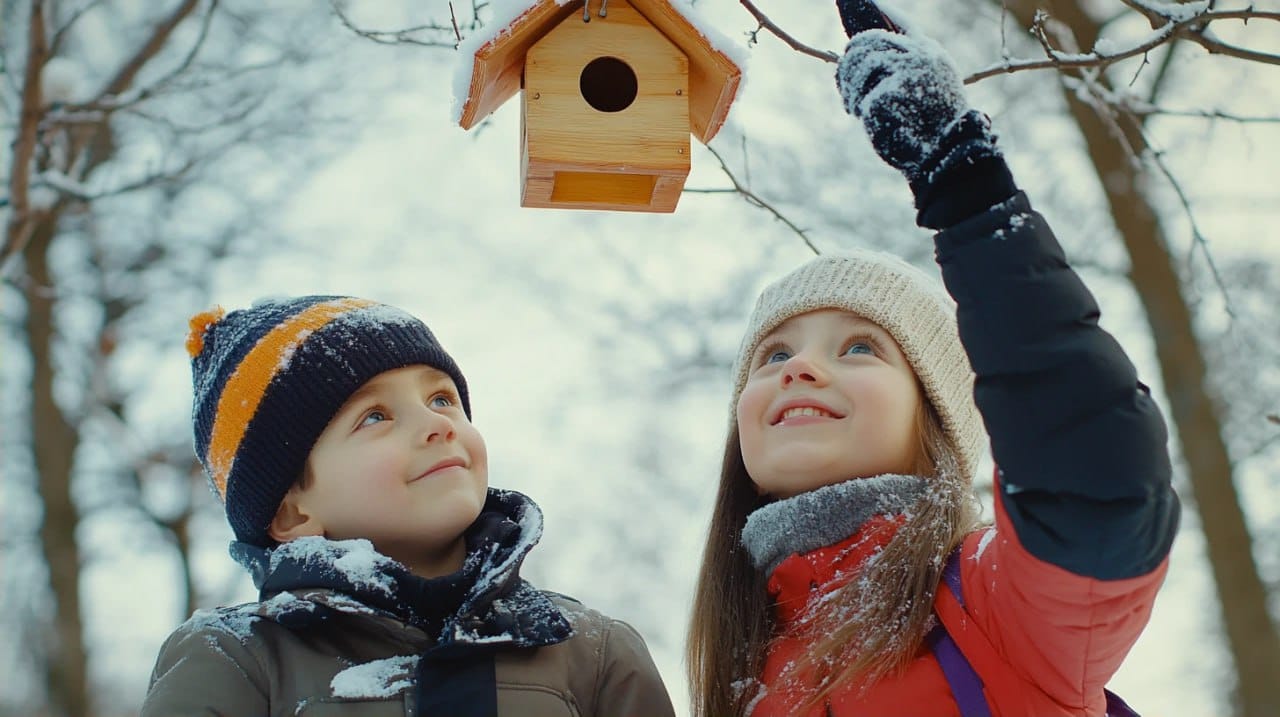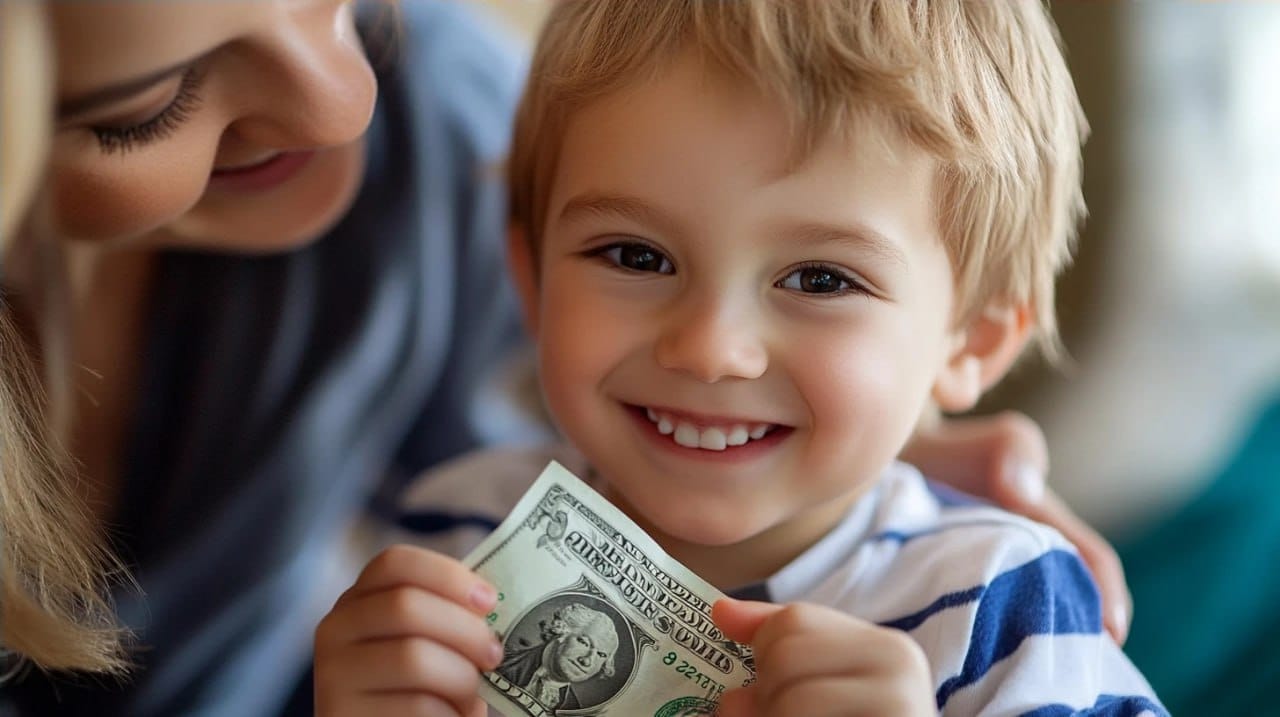How to Help your Kids Organize their Own Secret Santa Exchange
A Secret Santa tradition is a fun way to exchange gifts, when nobody knows who will give them a gift. While this game is often associated with adults, kids can also enjoy this wonderful activity and learn the joy of giving.

In this article, we are going to share how to aid kids in organizing their gift exchange, just with a little guidance.
Set a group size
The first step in helping your kids with their own Secret Santa exchange is to assist them in deciding whom to include. This can be a group of close friends, classmates, or neighbors. While the group can be any size, it is more fun to have a larger group. Tell your child to explain the rules of the game to those they want to include, and encourage them to participate. Kids can invite others either through face-to-face interactions or by using handmade invitations.
What to include in handmade invitations?
Help your child create colourful, festive, and creative invitations. Let your imagination run wild and use winter stickers, markers, or coloured pencils. These invitations may include phrases such as: "I invite you to a gift exchange party, which will take place... Do you want to become someone's Secret Santa? Join the Secret Santa game!"
Set the rules of participation and budget
Discuss with your child the joy of giving and what gifts they consider great for their friends. Explain that gifts don’t need to be expensive; they should be meaningful and chosen with care. Have an open conversation about why everyone must both give and receive, creating a balanced and joyful experience.
Here are some of them:
- Art tools. Creative gifts are perfect for those who love drawing and self-expression. Give preference to the sets with multiple markers, crayons, or paints.
- Board or card games. Children will appreciate such gifts as they encourage bonding with other kids and promise a fabulous time while playing.
- Outdoor toys. Items such as a frisbee, a ball, or a jumping rope inspire kids to be active instead of spending time with their phones.
- Puzzle sets. Puzzles are great for kids as they improve problem-solving skills, enhance concentration, and support cognitive development.
- Science kits. Such gifts are educational and entertaining, inspiring kids to research and learn with experiments.
- Plush toys. They are suitable for small kids and are associated with coziness and care of a gift-giver.
- Books. A useful gift who reading lovers — it will be great to know the type of books the gift recipient loves in advance.
- Lego sets. They are great for developing fine motor skills and problem-solving abilities.
Plan the Draw
Discuss with your child options for drawing names.
There are two ways of doing it:
- A classic draw from a hat. Cut pieces of paper with the names of all the participants and place them in a large hat. Have everyone take turns picking a name to find out who they will be gifting. Encourage your child to keep their chosen name a secret until the reveal! To make this activity even more fun, suggest listening to energetic music and dancing while drawing names.
If there’s an uneven number of participants, one person may end up being both the gift giver and the gift recipient.

- With an online Secret Santa generator. For a more technological approach, help your child register for an online Secret Santa generator, like MySanta App. This tool allows participants to draw names with just a click. If someone wishes to avoid gifting a particular person, the generator can set exceptions. Once everyone is registered, it’s time to start the draw.

Create Wish Lists
Wishlists are very useful as it is easier for the person to be pleased with a gift if they have one. Give your child some tips on how to create wish lists for drawing a hat or playing with an online secret Santa generator.

- Creating wish lists when playing Secret Santa with a hat. When playing Secret Santa with a hat, it's essential to create wish lists. Encourage your child to ask everyone involved to draft their own lists of gift ideas and include hints on where to buy them. It’s also helpful to add favorite colors to these lists. The organizer of the game should gather all wish lists and keep them in one place before the drawing. After the names are drawn, the gift giver can refer to their recipient's list to choose a gift that aligns with their preferences.
Encourage both creativity and open-mindedness when it comes to gift-giving and receiving. Remind your child that being a bit vague about gift preferences can lead to more excitement. For example, instead of specifying a particular item, children might write something like, “a funny toy to play with” or “a piece of clothing in my favorite color.”
- Creating wish lists with the online Secret Santa generator. Using an online Secret Santa generator can simplify the organization of the gift exchange. With this tool, each participant can create their wish list (with a little help from their parents), making it easier for gift-givers to select the perfect present. In these wish lists, kids can also indicate where to find their desired gifts.
Wrap the gift
Children might not be very careful when wrapping a gift. So, give your child some help. You can watch some educational videos together about how to wrap a gift, but do not do all the work yourself - encourage independence. Go to the store together and buy ribbons, different kinds of wrapping papers, and pretty bows for the gifts.
Tell your child how to label the gifts so that they remain anonymous. Explain that it's important to take care when wrapping the gift to show that they are being treated with care by the person receiving the gift.
Set a gift exchange date
Tell your child that it is important to set a date that is convenient for everyone involved. It's great to exchange presents about one week before the holidays, because then children can leave for the holidays with their parents or have a lot to do. When children organize a gift exchange, they should discuss the deadline for buying or making presents and a specific exchange date. This can be done after school, at someone's house, or at a party. Organising such events helps children learn time management skills that will be useful in the future.
Exchange gifts
You can help your child organize a gift exchange party at home. Opt for classical Christmas decorations or choose a topic that guests might like. It can be connected with their favourite characters or movies. Prepare some board games and activities.

Here are some ideas:
- Musical Chairs. Kids walk around in a circle of chairs with Christmas music playing, and they must quickly find a chair when the music stops. Every round, one of the chairs is removed, creating a fast-paced, exciting game.
- Holiday Bingo. Children play bingo by marking festive items off their cards as the host calls them out. It's a fun, relaxing activity where children try to mark off all the festive things and get a little prize for doing so.
- DIY Ornaments. Kids can make holiday ornaments with craft supplies like paper, glue, glitter, and string. This encourages creativity and provides them with a keepsake they can take home.
- Scavenger Hunt. Hide themed items around the house or yard and give kids a list of what to find. This active game sparks curiosity and teamwork as they search for each clue.
Remind your child to show gratitude when receiving gifts and to appreciate the efforts put into them. Take photos or record a video of the gift exchange process to create lasting memories.
Conclusion
With a little support and encouragement, kids can confidently organize and enjoy their own Secret Santa gift exchange. The experience fosters bonding, creativity, and generosity. Parents can take joy in watching their children take the lead in creating a bit of holiday magic.
FAQs
Why is it important for kids to be involved in organizing the Secret Santa tradition?
It gives them a sense of responsibility and teaches them planning, generosity, and thoughtful gift-giving. It's also a great way to improve their social skills and make the holiday more special.
How can parents help their kids choose the right gifts?
Parents should help their children create wishlists that reflect what they want and need. This will prevent disappointment when they receive a gift.
How can kids stay on budget while still buying thoughtful gifts?
Parents can help their children set a spending limit and suggest handmade or personalized gifts. This shows kids that gifts don't have to cost a lot; they just need to be thoughtful and caring.



